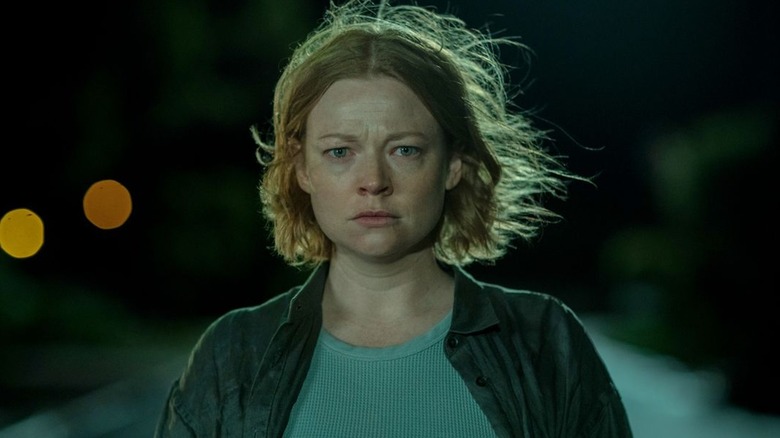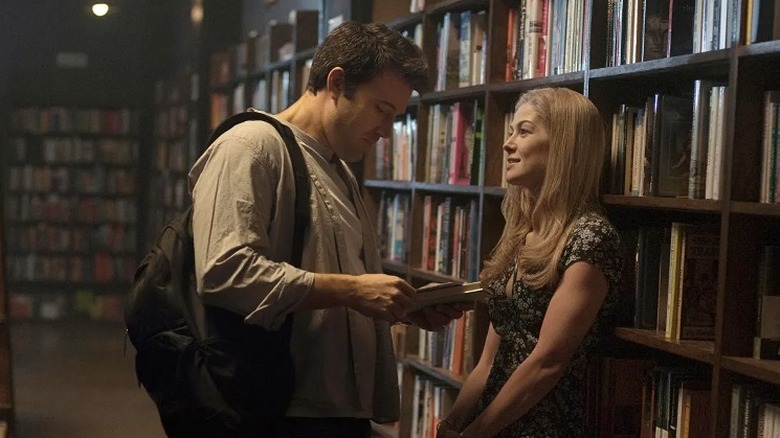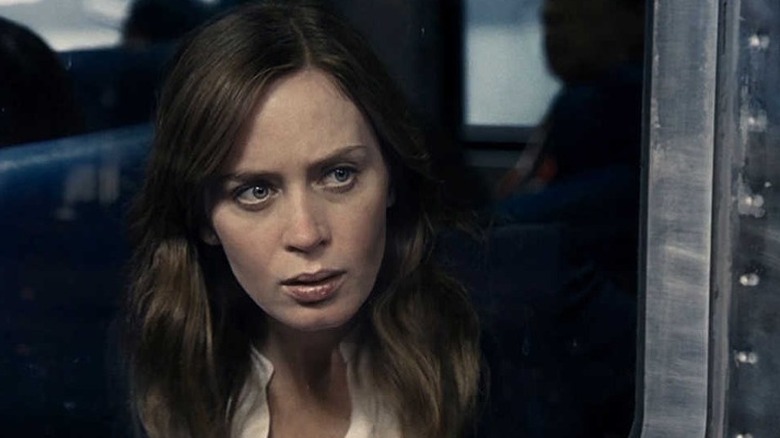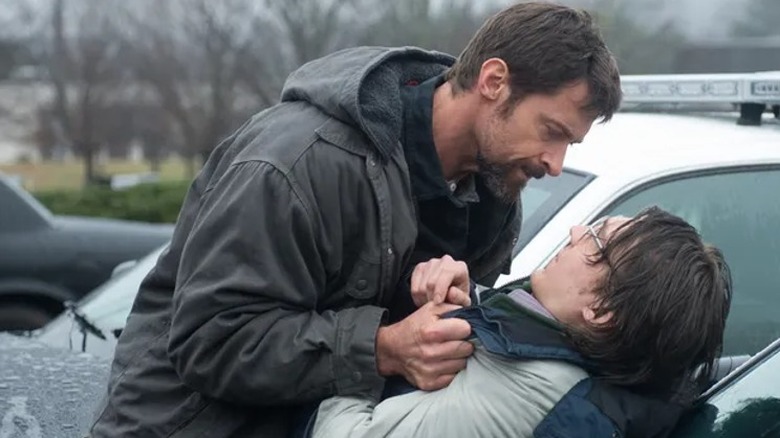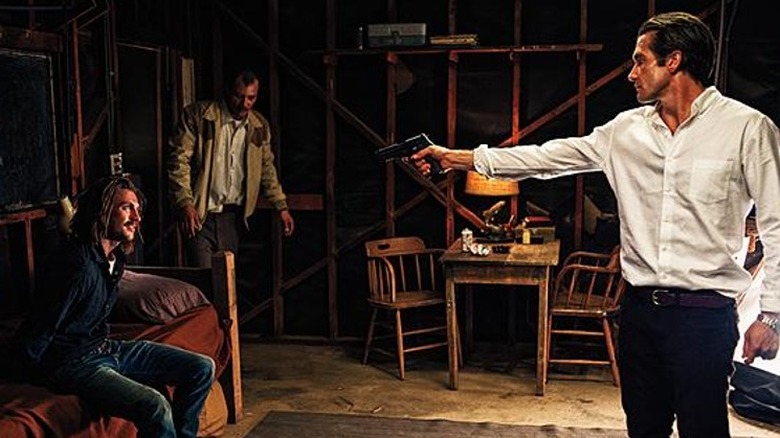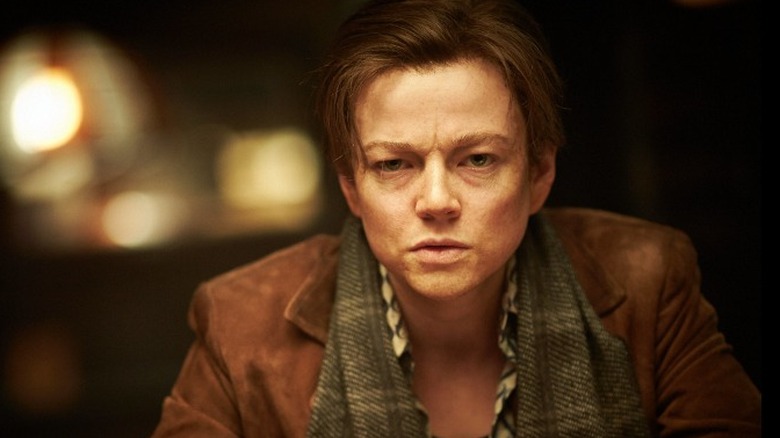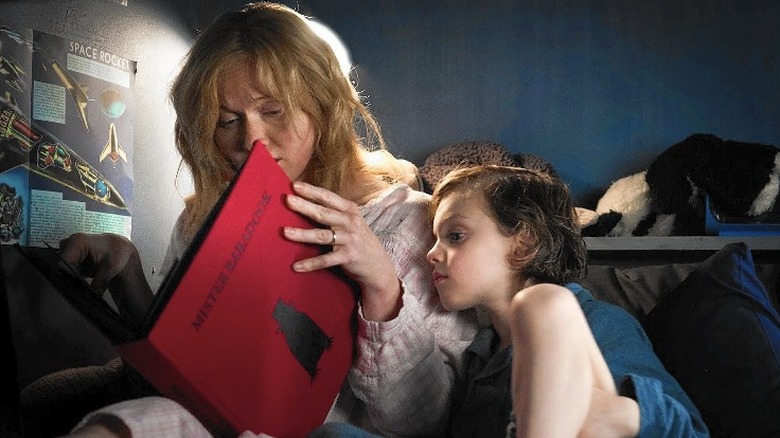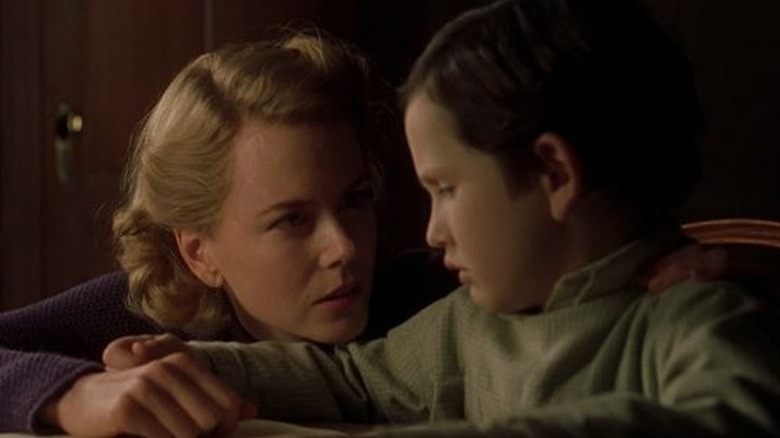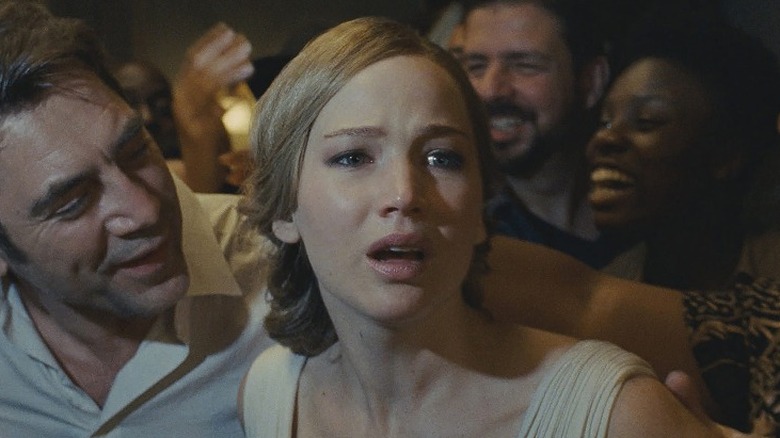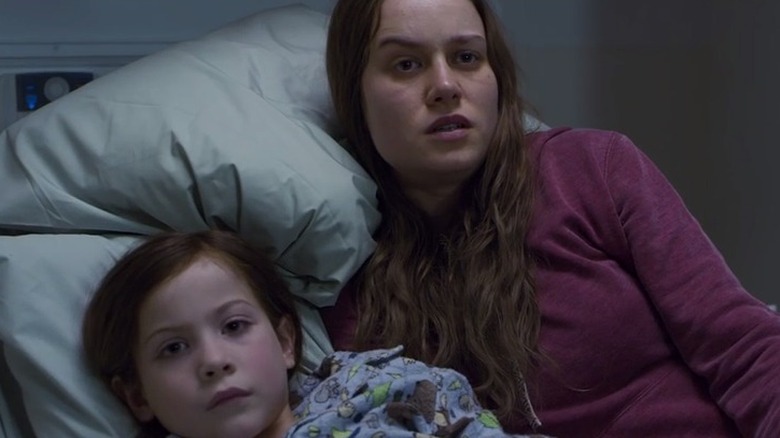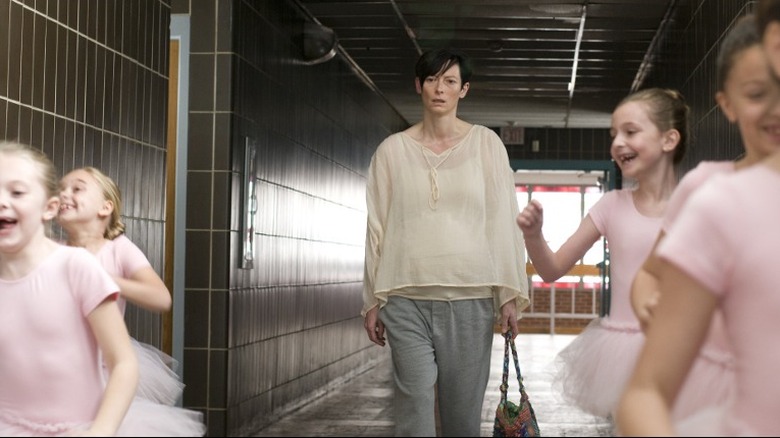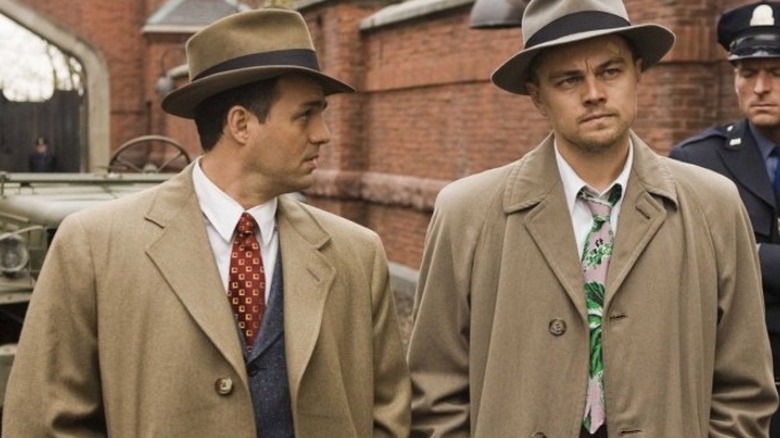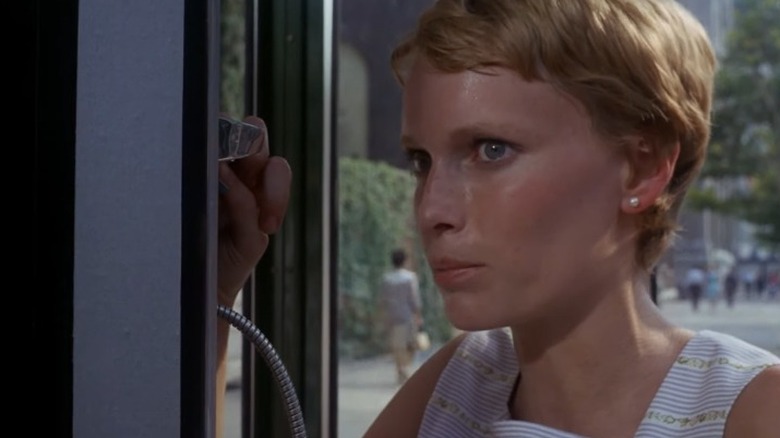12 Movies Like Run Rabbit Run That Thriller Fans Should Watch Next
"Run Rabbit Run" is Netflix's new thriller featuring Sarah Snook as a fertility doctor, also named Sarah, who discovers that her daughter is experiencing false memories from a past life. As Sarah delves deeper into the situation, she uncovers a disturbing truth: she must confront the traumas of her own past. Despite facing negative critical reception, it delivers an impressive performance by Sarah Snook and presents genuinely challenging sequences, which appeal to fans of the genre.
While a scathing review in the New York Times criticized the film for its gloomy and vague nature, there is an argument to be made that these very aspects are what certain fans seek in a thriller. "Run Rabbit Run" possesses multiple elements that fans would appreciate revisiting or exploring further, and we are here to provide recommendations.
The screenplay for the movie is penned by first-time screenwriter Hannah Kent, renowned in the literary world for her award-winning novel "Burial Rites." Kent acknowledged that writing this film was a learning process, but considered it a fruitful experience. Perhaps this explains the perceived flaws pointed out by critics. Nonetheless, the movie successfully incorporates elements such as an unreliable narrator, complex family relationships, hallucinations, and more, which can also be found in other films. Let's explore 12 such movies.
Gone Girl
"Gone Girl" is widely revered as a generation-defining thriller for good reason. The film actively explores the fluctuating dynamics of Nick (Ben Affleck) and Amy Dunne's (Rosamund Pike) marriage, which has long lost its spark. When Amy discovers Nick's infidelity, she takes the extreme step of faking her death to exact revenge. Notably, Gillian Flynn's exceptional script, adapted from her book, contributes to the film's success. Who would have guessed the best way to stay faithful to the book was just rehiring the same writer?
Within the thriller genre, "Gone Girl" has become a cherished depiction of female rage, captivating fans and dominating popular culture. Fans of "Run Rabbit Run" would readily draw comparisons between the two films, particularly in their portrayal of complex relationships. In "Run Rabbit Run," Sarah grapples with the aftermath of a fractured relationship with her mother, leading to manipulation from both sides and affecting her bond with her child.
While both films explore complicated relationships, "Gone Girl" delves even more profoundly into its central relationship by skillfully incorporating flashbacks to expose its gradual dissolution. Fans will appreciate the striking similarities between the two films, with "Gone Girl" being more accessible and easier to digest. On top of all that, the movie showcases one of Ben Affleck's most impressive performances yet.
The Girl on the Train
Novels have always provided abundant source material for gripping cinematic thrillers, and they continue to captivate audiences. The 2016 film "The Girl on the Train," based on the novel of the same name, revolves around Rachel Watson (Emily Blunt), who struggles to confront her alcoholism while navigating the conflicting narratives fed to her by the men in her life. With its twists and turns, the film constantly forces the audience to reevaluate what it's witnessing.
Similar to "Run Rabbit Run," the suspense is what keeps fans hooked throughout "The Girl on the Train." As the movie progresses, viewers begin to realize that they can't fully rely on Rachel's recollection of events. Her alcoholism, stemming from her inability to conceive a child, leads to intermittent memory blackouts, intensifying the intrigue surrounding her investigation of the central crime. In many ways, the film's structure bears a resemblance to "Memento," with both featuring an unreliable narrator, just like "Run Rabbit Run."
Audiences who watch "The Girl on the Train" can expect a more mainstream take on what "Run Rabbit Run" tries to achieve. The film answers some questions while introducing new ones, ultimately providing a rewarding ending that demands viewers' undivided attention. Much like "Run Rabbit Run," this movie offers intrigue, mystery, and catharsis.
If you or anyone you know needs help with addiction issues, help is available. Visit the Substance Abuse and Mental Health Services Administration website or contact SAMHSA's National Helpline at 1-800-662-HELP (4357).
Prisoners
Denis Villeneuve's impressive directorial run since 2010 remain unparalleled. One of the films he's helmed during his successful streak is the thriller "Prisoners," which revolves around two families grappling with the abduction of their daughters. The introduction of a primary suspect early on, coupled with the lack of sufficient evidence to hold him, forces the families to take matters into their own hands.
Similarly, in "Run Rabbit Run," Sarah is resolute in her determination to go to any lengths to protect her daughter. While the identity of the most significant threat to Sarah's child remains unclear in that particular film, "Prisoners" presents a more direct depiction of an abduction. Both movies create a sense of urgency for parents desperately seeking to ensure their children's safety, highlighting the profound parental instinct to shield their offspring.
It's worth noting that "Prisoners" benefits from the exceptional cinematography of Sir Roger Deakins, who masterfully crafts a cold and desolate world devoid of hope. This film, like others on this list, explores the theme of deceptive appearances. Additionally, it boasts remarkable performances from acclaimed actors such as Hugh Jackman, Melissa Leo, Viola Davis, Paul Dano, and Jake Gyllenhaal, who deliver some of their finest work to date.
Nocturnal Animals
The premise of "Nocturnal Animals" is even more intricate than the storyline itself. The movie revolves around Edward Sheffield (Jake Gyllenhaal), who grapples with the breakdown of his marriage by writing a book. The film interweaves scenes of his ex-wife Susan Morrow (Amy Adams) reading the dark thriller with a separate physical manifestation of the book's world, with Gyllenhaal serving as the connecting thread by playing the book's protagonist, Tony Hastings, in addition to its author.
In the climax of "Run Rabbit Run," fans finally discover that Sarah's long-deceased sister, Alice, is at the core of the vengeance plot or, at the very least, the mental anguish stemming from Sarah's guilt. This underlying theme resonates in "Nocturnal Animals" as well. Edward Sheffield uses his book as a means to expose his ex-wife to the extent of his emotional pain from their past relationship, employing brutally vivid allegory.
At its finest, "Run Rabbit Run" immerses the audience in Sarah's deteriorating mental state. Viewers not only empathize with her predicament but also sense her genuine remorse. Similarly, in "Nocturnal Animals," fans will have the opportunity to witness Amy Adams deliver a nuanced performance, effectively portraying those similar emotions. Additionally, the film is worth watching due to its director, the renowned fashion designer Tom Ford, who occasionally ventures into filmmaking with carefully selected projects.
Predestination
While watching "Run Rabbit Run," it's impossible to ignore the anticipation surrounding Sarah Snook's career after her breakthrough in "Succession." It's still too early to predict how Snook's career will progress, but one thing is certain: Snook's talent is unquestionable, as evident in this film. For fans who want to see more of her prowess in the thriller genre, a great starting point is the 2014 sci-fi drama "Predestination."
"Predestination" is an impressive two-hander where a then-unknown Snook holds her own opposite beloved veteran character actor Ethan Hawke in a captivating time travel tale. The story kicks off in 1992, when time-traveling Agent Doe (Hawke) fails to stop a terrorist attack, leaving him injured. He is subsequently sent back to 1970 for a final mission, where he crosses paths with a stranger named Jane in a bar. As Doe learns more about Jane (Snook), the story cleverly circles back, intertwining with his journey. It's one of those movies where the less you know going in, the better the experience.
While "Run Rabbit Run" may differ from "Predestination," particularly in its sci-fi elements, fans who enjoyed the suspense of the former can expect to find a similarly gripping atmosphere in the latter. However, undoubtedly the biggest draw of both movies is Sarah Snook's powerhouse performance, showcasing her remarkable talent within two thrilling narratives.
The Babadook
"The Babadook" delves into the story of Amelia (Essie Davis), a widow who tragically lost her husband on the way to the hospital during childbirth. The weight of grief wears her down over the years, causing emotional distance between her and her son (Noah Wiseman). As her child becomes increasingly difficult, a ghost named the Babadook begins to seemingly manifest from her son's book.
The movie intentionally keeps the audience guessing whether the ghost is real or a creation of the son's vivid imagination. Similarly, in "Run Rabbit Run," Sarah's daughter claims to be her sister, blurring the line between reality and the mother's possible hallucinations. Both films prompt viewers to question what is genuine and what is a product of the character's psyche. The challenging nature of motherhood and its impact on an individual's psychology is a major theme shared by these two films.
However, it's worth noting that "The Babadook" leans more toward the horror genre. While it will undoubtedly appeal to fans of "Run Rabbit Run" due to the thematic similarities, some elements in "The Babadook" may prove too frightening for more sensitive viewers.
The Others
This list would be incomplete without a Nicole Kidman-led movie, as nobody portrays a distraught mother quite like her. "The Others" is a thrilling addition to this lineup. Set in the immediate aftermath of World War II, the Stewart family finds themselves in a secluded mansion on the island of Jersey after the loss of their patriarch. As the movie progresses, a mystery is gradually revealed that may be a clever bait and switch.
When fully engrossed in "The Others," viewers quickly realize it is more than just the sum of its parts. It refuses to be a run-of-the-mill thriller tied down by familiar tropes, similar to "Run Rabbit Run." "The Others" embraces a twist ending that, in the hands of a lesser filmmaker than Alejandro Amenábar, could have fallen into hackneyed territory.
"The Others" and "Run Rabbit Run" also share a common element in their use of practical effects to create a chilling atmosphere. In an era where movies often rely on digital effects and jump scares, these two films demonstrate that an engaging story can be just as effective.
Mother!
"Mother!" stands as one of the most complex movies of recent years, with Jennifer Lawrence delivering a standout performance within its intricate narrative. The story unfolds as a woman simply named Mother (Jennifer Lawrence) and her husband (Javier Bardem) attempt to settle into a new home. However, the introduction of increasingly volatile characters plunges their lives into chaos, leaving the protagonist questioning her husband's intentions.
For fans who relish the challenge of deciphering puzzling plots, "Mother!" offers a tantalizing experience. Its rich symbolism and allegorical elements invite audiences to delve deeper and unravel hidden meanings. Similarly, in "Run Rabbit Run," certain elements, such as the presence of a rabbit, require additional exploration to fully grasp their significance.
"Mother!" is a film that encourages viewers to seek explanations beyond the surface level. Jennifer Lawrence herself has admitted to still grappling with its complete meaning. However, when considered within director Darren Aronofsky's body of work, the movie emerges as an allegory that artfully weaves together religious themes and concerns about climate conservation. Despite the complexity of the film, the entire cast appears fully immersed and delivers performances of such incredible caliber that they alone justify the price of admission. Ultimately, it is up to each viewer to interpret and untangle the movie's enigmatic tapestry.
Room
Brie Larson's performance in "Room" sent her career into overdrive and earned her numerous accolades, including the Academy Award for Best Actress. The film portrays the gripping story of Joy (Larson), a 24-year-old abductee who is confined in a shed and subjected to nightly assaults by her captor, Old Nick (Steve Bridgers). Throughout the seven years of her abduction, Joy finds solace and strength in her resilient child, Jack (Jacob Tremblay). This bond leads her to contemplate an escape from their harrowing circumstances.
One overlooked aspect of "Run Rabbit Run" is the strong initial relationship between Sarah and her daughter. They communicate effectively, with Sarah valuing her daughter's preferences and respecting her choices, fostering a healthy and loving connection. Similarly, in "Room," the film reveals that while Joy initially appears to be the driving force behind saving her son, it becomes evident that her son actively participates in saving her as well.
What captivates the audience most is how "Room" goes beyond the mere escape plot, delving into the enduring impact of trauma on individuals who nevertheless display unwavering perseverance and determination. The film presents a challenging yet enthralling viewing experience, exploring the complex manifestations of trauma in human beings.
We Need To Talk About Kevin
The evil child trope is a theme that is often treated lightly or used as a red herring. However, in Lynne Ramsay's "We Need To Talk About Kevin," this trope is approached with utmost seriousness. The film revolves around a mother named Eva (Tilda Swinton) who struggles to discipline her child, Kevin (Ezra Miller), who inexplicably harbors a deep dislike specifically of her. While Kevin maintains a good relationship with his father, he relentlessly torments his mother, making her life unbearable. As tensions escalate, the mother reaches a breaking point and unintentionally harms Kevin. When his father tries to uncover the truth, Kevin manipulates the situation, using it as leverage to blackmail his mother. The arrival of another child only intensifies Kevin's jealousy, leading to devastating consequences.
Lynne Ramsay's filmmaking style caters to those who appreciate dark and gritty cinema. "We Need To Talk About Kevin" takes audiences on an emotionally charged journey, delving into unfamiliar and profound territories — especially if the audience is carrying expectations from "Run Rabbit Run" that this may all just be in the mother's head.
"We Need To Talk About Kevin" fearlessly embraces the evil child trope, portraying it in a raw and stomach-churning manner. The film will certainly surprise viewers unacquainted with Ramsay's distinct style of storytelling.
Shutter Island
In the early 2000s, Martin Scorsese found a new muse in Leonardo DiCaprio, and their collaboration has resulted in six movies over two decades. While their projects typically garner high-profile attention and push artistic boundaries, "Shutter Island" takes a different approach. Set in the 1950s, the film embraces B-movie tropes as it follows a detective investigating a disappearance at an asylum located on a remote island.
The movie's intrigue stems from the question of how an inmate could escape from such desolate conditions and whether the guards can be trusted. While the surprises in "Shutter Island" are often considered the main draw for fans of this movie, the true joy of the film lies in its intricately woven details that reward multiple viewings. Each time, the film reveals new layers, enhancing the viewing experience.
Similar to "Run Rabbit Run," the identity of the villain remains unclear throughout the movie, leaving the audience reliant on the limited information shared by the protagonist. "Shutter Island" also keeps viewers in suspense and questioning who is responsible for what. Ultimately, the movie provides an entertaining, enjoyable journey, even if it aims for more modest ambitions that do not compromise its quality.
Rosemary's Baby
Regarded as one of the greatest horror films of all time, "Rosemary's Baby" holds appeal not only for genre enthusiasts but for movie lovers in general. The story centers around Rosemary (Mia Farrow), who moves into a new building with her husband, Guy (John Cassavetes), only to be treated dismissively by her husband and outright targeted by everyone else around her. Little does she know, she is at the mercy of a dangerous cult.
Rosemary's ultimately endures sexual assault by Satan himself, resulting in her pregnancy with his child. As the due date for the baby approaches, Rosemary's mental state deteriorates. The film skillfully critiques capitalism, religion, sexism, and more, weaving them together and anchoring them with Farrow's nuanced portrayal.
"Rosemary's Baby" is a particular inspiration for "Run Rabbit Run" in its depiction of supernatural elements within a grounded narrative. The film employs a less-is-more approach, only hinting at supernatural occurrences. Fans should consider this movie essential viewing, as few others have shaped the horror genre quite like this seminal work.
If you or anyone you know has been a victim of sexual assault, help is available. Visit the Rape, Abuse & Incest National Network website or contact RAINN's National Helpline at 1-800-656-HOPE (4673).
